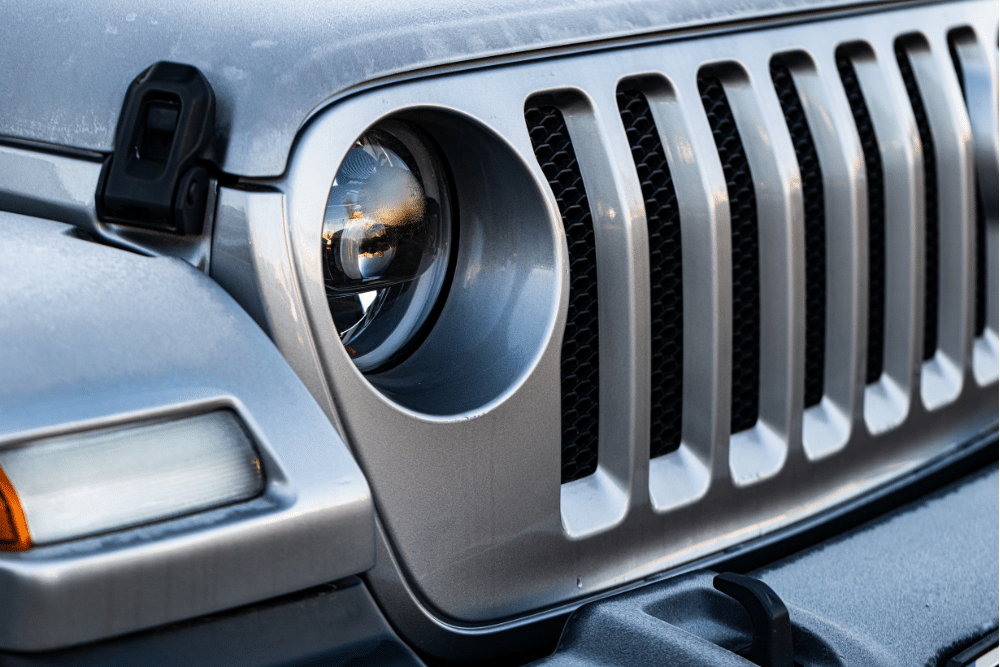A leaking oil cooler isn’t just an annoying drip beneath your Jeep, it’s a warning sign that shouldn’t be ignored. Whether you’re driving a Wrangler, Cherokee, or Grand Cherokee, oil cooler issues can lead to overheating, low oil pressure, or even serious engine damage if left unchecked. Many Jeep owners often ask, “How do I know if my oil cooler is leaking, and what should I do about it?” This post is here to answer exactly that. We’ll cover the telltale symptoms, what causes these leaks, and the most effective solutions to keep your Jeep running safely and smoothly.
If you’ve noticed strange smells, oil stains, or a check engine light and suspect an oil cooler problem, you’re not alone, and you’re not without options. In this blog, we’ll guide you through the most common signs of a leaking Jeep oil cooler, why it happens (especially in 3.6L Pentastar engines), what the repair process looks like, and why it’s important to act fast. We’ll also share what we do at Trustworthy Auto in Seekonk, MA, to fix the issue properly the first time. Whether you’re looking to understand the problem better or need a reliable shop to handle the repair, this post has you covered.
What Does an Oil Cooler Do in Your Jeep?
Your Jeep’s oil cooler plays a crucial role in maintaining engine performance and longevity. It functions as a mini radiator, transferring excess heat away from the engine oil either into the coolant or directly into the air, depending on the system design. By doing this, the oil cooler ensures your engine oil stays within a safe operating temperature range even when you’re towing, off-roading, or sitting in heavy traffic.
Without proper oil cooling, engine oil can thin out from heat, losing its ability to lubricate vital components like bearings, camshafts, and pistons. This increases wear and tear and can eventually lead to overheating or internal engine damage. In some cases, a failing oil cooler can even allow oil and coolant to mix, a serious issue that compromises both systems. Keeping the oil cooler in good condition isn’t just maintenance, it’s essential for protecting your engine from preventable damage.
Why Jeep Oil Cooler Leaks Are So Common
Oil cooler leaks are a known issue in many Jeep models, especially those with 3.6L Pentastar engines. The oil cooler assembly in these engines is made of plastic, which can become brittle over time due to extreme temperature swings. This design choice, combined with the location of the part under the intake manifold, makes it prone to leaks.
Contributing factors:
- Thermal stress from engine heat
- Poor quality gaskets or seals
- Plastic housing deterioration
- Engine vibration and expansion over time
Symptoms of a Jeep Oil Cooler Leak
Worried your oil cooler might be leaking? Here are some signs to watch for:
1. Oil Spots Under Your Jeep
Small puddles or stains on your driveway or garage floor may be the first sign. If you’re seeing dark fluid under the middle or front of the vehicle, it could be engine oil from the cooler assembly.
2. Low Oil Level
Constantly having to top off your oil? A leaking oil cooler can cause a gradual drop in oil levels, even if there aren’t obvious drips.
3. Burning Oil Smell
Leaking oil can land on hot engine components, causing a strong burnt oil odor. If it smells like something’s cooking under your hood, it’s time for a checkup.
4. Check Engine Light
Modern Jeeps monitor oil pressure and temperature. A drop due to a leak can trigger the check engine light.
5. Overheating
Since the oil cooler is part of your engine’s thermal system, a failure can affect cooling, especially if oil and coolant are mixing.
6. Oil in the Coolant or Vice Versa
This is a serious warning. If your coolant looks milky or your oil looks frothy, your cooler might be allowing cross-contamination; get it checked immediately.
How We Fix Jeep Oil Cooler Leaks at Trustworthy Auto
We’ve helped countless Jeep owners fix oil cooler problems correctly, with no band-aid repairs. Our ASE-certified technicians use quality parts and follow OE procedures for long-term reliability.
Here’s what our repair process involves:
- Thorough Inspection – We start with a full digital vehicle inspection (DVI), complete with photos you can view on your phone.
- Leak Verification – We clean the engine bay and use UV dye (if needed) to pinpoint the leak source.
- Part Replacement – For Jeeps with 3.6L engines, we install an upgraded aluminum oil cooler assembly when possible.
- System Cleaning – If oil and coolant have mixed, we perform a complete coolant system flush to remove contaminants and protect your engine. As a BG-certified shop, we use premium BG fluids and cleaners designed to restore and maintain your engine’s performance, ensuring long-term reliability.
- Road Testing – Once repairs are complete, we road test the vehicle to ensure no issues remain.
Why You Should Act Quickly
An oil cooler leak might start small, but it rarely stays that way. As oil continues to escape or mix with your coolant, your engine is forced to run under increasing stress, often without you noticing right away. Over time, even minor leaks can lead to major problems that are far more expensive and difficult to repair.
Ignoring an oil cooler leak can lead to:
- Bearing failure: Lack of proper lubrication causes metal-on-metal contact inside the engine, wearing down critical components.
- Engine overheating: As oil flow decreases or coolant becomes contaminated, your engine’s ability to manage heat breaks down.
- Loss of compression: Heat and internal damage can affect piston rings and cylinder walls, leading to poor performance and starting issues.
- Catastrophic engine damage: Left unchecked, an oil cooler leak can eventually destroy the engine, requiring a complete replacement.
Catching this issue early not only saves you money, but also protects your Jeep’s reliability, performance, and long-term value.
Jeep Models Commonly Affected
We frequently see oil cooler leaks in the following models:
- Jeep Wrangler (especially 2012–2018)
- Jeep Grand Cherokee
- Jeep Cherokee
- Jeep Compass and Renegade (with specific engines)
No matter your model, if you’re noticing symptoms, get your vehicle inspected.
DIY Jeep Oil Cooler Repair: Worth It?
If you’re an experienced DIYer, you might consider it, but be warned: this is not a simple job. Replacing an oil cooler often involves removing the intake manifold and can take several hours. Mistakes can lead to more leaks or engine damage.
If you’re searching for a Jeep mechanic near me, save time and hassle; let the pros at Trustworthy Auto handle it.
Why Choose Trustworthy Auto for Jeep Repair in Seekonk, MA?
When it comes to fixing Jeep oil cooler leaks or any issue under the hood, you want a shop that knows your vehicle inside and out. We’ve earned a reputation for expert-level Jeep service and customer care that lives up to our name. Our experience with common Jeep issues, especially in models like the Wrangler and Grand Cherokee, means we get the job done right the first time, without the guesswork.
Here’s what sets us apart:
- We specialize in Jeep repairs, including Wranglers, Cherokees, and Grand Cherokees
- Our team is ASE-certified and STX-trained
- We use upgraded, long-lasting replacement parts
- We provide digital inspections with photo documentation
- You’ll get transparent pricing and honest service
- We back our work with a 3-year/36,000-mile warranty
- Enjoy loaner cars, shuttle service, text-to-pay, and refreshments while you wait
At our Seekonk, MA location, we combine technical skill with clear communication so you always know what’s happening with your vehicle. When you bring your Jeep to us, you’re not just getting a repair, you’re getting peace of mind.
Frequently Asked Questions About Jeep Oil Cooler Leaks
How can I tell if my Jeep has an oil cooler leak?
Look for oil spots under the vehicle, a burning oil smell, low oil levels, or a check engine light. Overheating or milky coolant is also a sign. If you’re unsure, get it inspected by a qualified Jeep mechanic in Seekonk, MA, like Trustworthy Auto.
Is it safe to keep driving with a leaking oil cooler?
No. A leak can lead to low oil pressure, overheating, or oil mixing with coolant, any of which can cause serious engine damage. It’s best to stop driving and get it looked at right away.
How much does it cost to fix a Jeep oil cooler leak?
Costs vary by model and severity, but early repairs are always cheaper than major engine work. Trustworthy Auto provides upfront pricing and uses quality parts built to last.
Which Jeep models are most affected by oil cooler leaks?
We see this most often in Jeeps with the 3.6L Pentastar engine, especially Wrangler, Cherokee, and Grand Cherokee models. If you drive one of these and notice symptoms, don’t delay an inspection.
Schedule Jeep Oil Cooler Service Before It Gets Worse
If your Jeep is showing signs of a leaking oil cooler, like oil spots, burnt smells, or a check engine light, don’t wait for it to escalate. Small leaks can quickly turn into major engine issues, and fast action can save you time and money.
At Trustworthy Auto in Seekonk, MA, our ASE-certified technicians know Jeeps inside and out. We provide honest diagnostics, quality repairs, and a smooth, transparent experience every step of the way.
Visit us at 246 Pine St, Seekonk, MA 02771, or call (508) 639-9414 to schedule service.
Or book your appointment online and let us get you safely back on the road.

